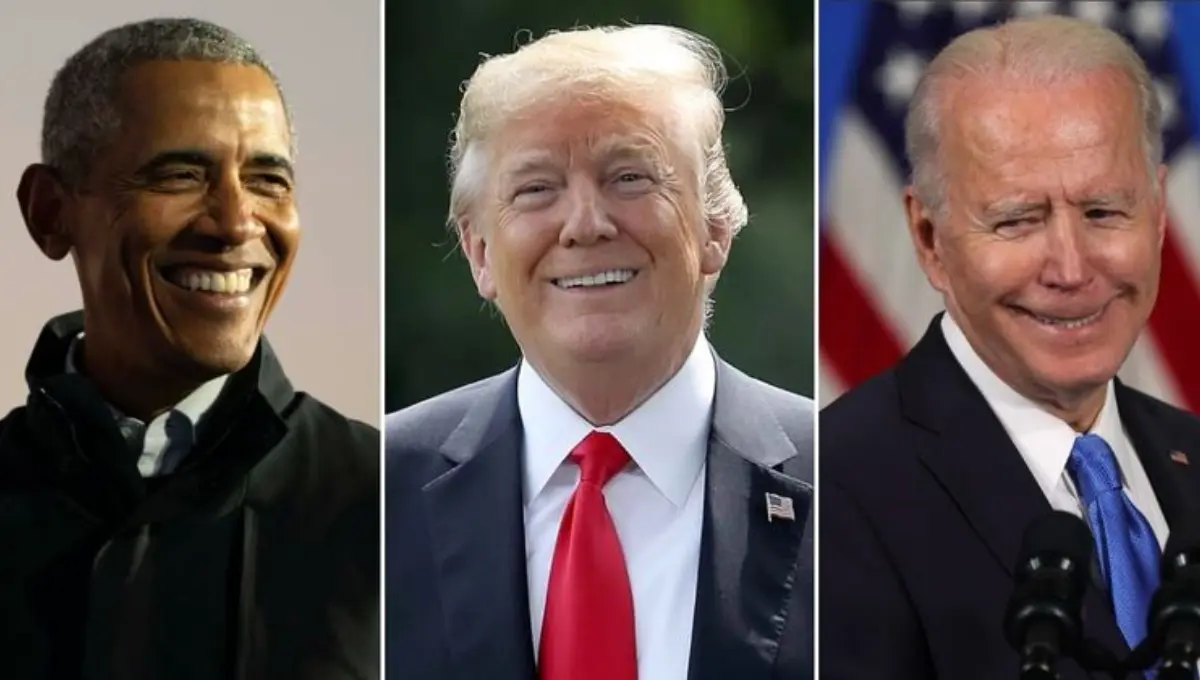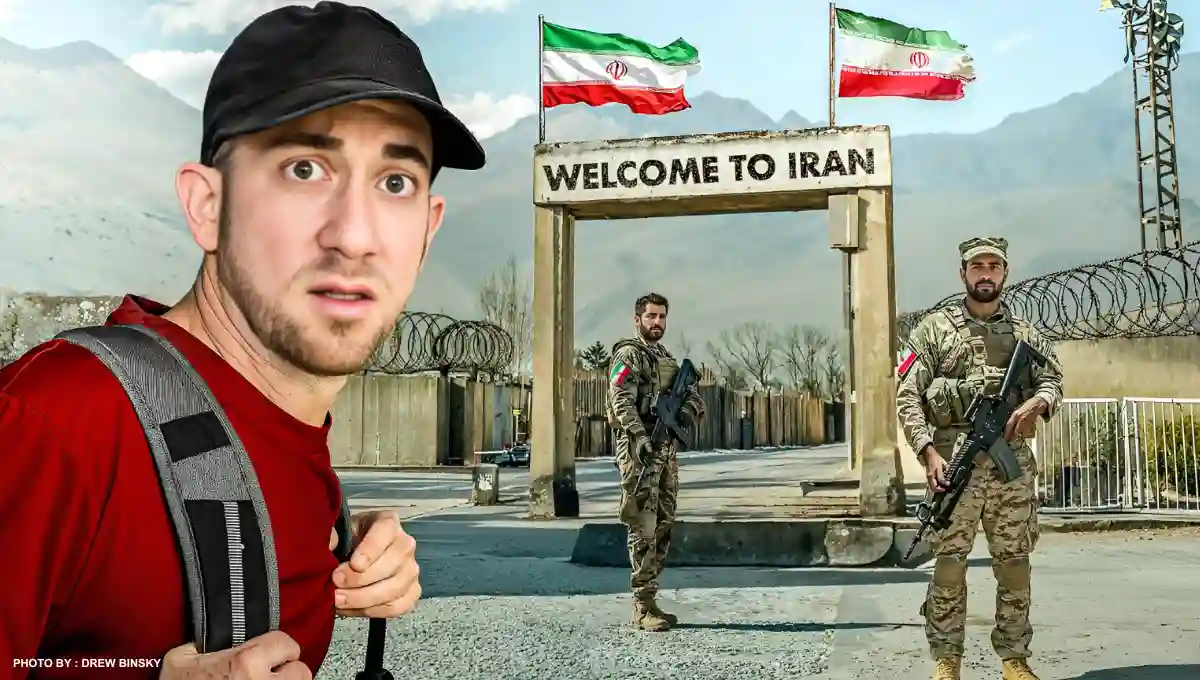When it comes to the highest office in the United States, questions often arise about various aspects of the President’s life. One intriguing query that often pops up is, “Does the US President have a passport?“
Yes, the US president needs a passport, but it is not the same as anyone else’s. Diplomatic passports, have a black cover and do not require the holder to pay a passport charge. These passports are given to the president of the United States, his immediate family, some top officials, and diplomatic staff.
When the president flies, a group of people, normally from the State Department, coordinates the trip’s paperwork and keeps the president’s passport secure. The president does not go through customs after leaving Air Force One, waving to the crowd, and getting into his limo.
Employees from the State Department collect his passport, as well as the passports of the others in their team, through the customs procedures of the host country.
Additional information regarding the US president’s passport includes:
- The State Department staff who handle the paperwork and customs processes for the president and his entourage organize the president’s passport.
- Like every other US passport, the President’s has a ten-year expiration date.
- Although the president’s passport number is unknown to the general public, it most likely begins with the letter D, which denotes a diplomatic passport.
- 🤷♂️ What are the special privileges of a diplomatic passport?
- 🤔 How can someone get a diplomatic passport?
- ⚖️ What is the difference between a diplomatic and an ordinary passport?
- ⚖️ What is the difference between an official and a diplomatic passport?
- 💁 Types of US Passports
- 🔥 In Case Of An Emergency
- 🙋🏻♀️ FAQs About Does The US President Have A Passport
- Q. Does the US president need a visa to travel?
- Q. Does the president go through passport control?
- Q. What is an official U.S. passport?
- Q. Who has a US diplomatic passport?
- Q. What color passport does the president have?
- Q. Can the President's passport be used for personal travel?
- Q. How often does the President travel internationally?
- Q. Does the US President have a diplomatic passport?
- Q. Can the President travel to any country in the world?
- Q. Does the President's passport have any special features?
- 😇 Conclusion
- 🔗 You Might Also Like
- 🗨️ Tell Us In Comments What You Think Does The US President Have A Passport?
 🤷♂️ What are the special privileges of a diplomatic passport?
🤷♂️ What are the special privileges of a diplomatic passport?

A diplomatic passport is a unique travel document issued to government officials, diplomats, and their families who engage in international diplomacy on behalf of their nation. Possessing a diplomatic passport comes with several special privileges that set it apart from regular passports. Here’s a closer look at these exclusive advantages:
- Visa-Free Travel: Diplomatic passport holders enjoy the perk of visa-free entry to many countries that maintain diplomatic relations with the issuing nation. This means they can enter these countries without the need to apply for a visa or pay any associated fees, streamlining their international travel.
- Diplomatic Immunity: Perhaps one of the most distinctive privileges is diplomatic immunity. It shields the passport holder from prosecution or arrest by the authorities of the host country, except in cases of grave offenses or when the sending country voluntarily waives the immunity. This immunity extends to the diplomat’s residence and office, which are considered sovereign territory of their home nation.
- Expedited Airport Procedures: Diplomatic passport holders are treated to smoother airport experiences. They have access to separate channels that allow them to bypass the standard passenger checks, customs inspections, and immigration queries that can cause delays and inconvenience for regular travelers.
- Tax Benefits: Diplomatic passport holders are entitled to tax-free airport departures and are exempt from travel taxes. This means they are not required to pay any taxes or fees when departing from or arriving in a country by air, adding another layer of convenience to their travels.
- Social Prestige: Holding a diplomatic passport bestows prestige and social status upon its holder. They are typically treated with respect and courtesy by both the host country’s officials and its citizens. Additionally, diplomatic passport holders often share a sense of camaraderie with fellow diplomats from different nations.
In essence, a diplomatic passport isn’t just a travel document; it’s a powerful tool that facilitates the work of diplomats and government officials on the global stage while affording them a range of special privileges that enhance their mobility and status.
🤔 How can someone get a diplomatic passport?
A diplomatic passport is a specialized travel document for government officials, diplomats, and their families involved in international affairs. It offers privileges like visa-free entry, diplomatic immunity, faster airport procedures, tax exemptions, and elevated social status.
To get one, you need citizenship in a country with diplomatic ties to the United States, an agreement permitting U.S. citizens to have diplomatic passports and a valid reason for official or diplomatic travel.
The process of obtaining a diplomatic passport may vary depending on your home country’s specific requirements and procedures. However, there are some general steps to follow:
- Register with the Passport Authority: Begin by visiting your country’s official passport authority website and registering yourself.
- Select the Diplomatic or Official Passport Option: Choose the option to apply for a diplomatic or official passport and complete the online application form with your personal and professional information.
- Provide Documentation: Be prepared to submit proof of your identity, evidence of your official position, biometric photographs, and any other documents mandated by your country.
- Submit Your Application: You can submit your application either online or in person at the nearest passport office or embassy.
- Wait for Processing: Your application will undergo a thorough review by the relevant authorities. Once approved, you will receive your diplomatic passport either by mail or in person.
Diplomatic passports typically have a validity period of 10 years, in line with regular U.S. passports. However, the specific duration may vary depending on your home country’s policies. To continue enjoying the benefits of a diplomatic passport, it is crucial to renew it before it expires.
In essence, a diplomatic passport serves as a powerful tool for diplomats and government officials engaged in international relations, granting them access to a host of advantages that facilitate their diplomatic missions abroad while symbolizing their status and responsibility on the global stage.
⚖️ What is the difference between a diplomatic and an ordinary passport?
Diplomatic passports and regular passports serve as official travel documents, but they differ in appearance, purpose, and privileges:
- Appearance: Diplomatic passports have a black cover labeled “Diplomatic Passport” and display the United States seal and the issuing country’s name. Regular passports have a blue cover with “United States of America” and “Passport” along with the U.S. seal.
- Purpose: Diplomatic passports are for government officials, diplomats, and their families involved in international relations. Regular passports are for any citizen traveling abroad for personal or professional reasons.
- Privileges: Diplomatic passports offer special privileges like visa-free entry, diplomatic immunity, expedited airport procedures, tax exemptions, and elevated social status. These benefits result from diplomatic relations and reciprocity. Regular passports do not grant these privileges; holders must adhere to host country regulations.
⚖️ What is the difference between an official and a diplomatic passport?
Official and diplomatic passports are specialized documents issued to government officials, diplomats, and their families engaged in international relations. Here’s how they differ:
- Appearance: Official passports have a white cover with “Official Passport” and the issuing country’s seal and holder’s name. Diplomatic passports feature a maroon cover with “Diplomatic Passport,” the issuing country’s seal, and the holder’s name.
- Purpose: Official passports are for U.S. government representatives traveling abroad while residing in the United States, exclusively for official business. Diplomatic passports are for those representing the U.S. government abroad, also solely for official purposes. Personal travel requires a regular tourist passport.
- Privileges: Official passports offer limited immunity from prosecution or arrest by the host country’s authorities, with exceptions for serious crimes or waived immunity. The holder’s residence and office are considered inviolable. They also grant visa-free entry to many countries with diplomatic ties to the United States. Diplomatic passports provide the highest level of immunity, except for grave crimes or waived immunity. The holder’s residence and office are sovereign territory. Additionally, diplomatic passports offer visa-free entry to many countries, streamlined airport security checks, tax-free airport departures, and elevated prestige and social status.
💁 Types of US Passports
Your passport is the most important and well-known travel document you can have. You may apply for a passport in the country where you were born. This main travel document assists in your identification for travel-related purposes. Let’s take a look at why it’s so valuable.
The US issues 5 types of passports as per below
1. Regular Tourist Passport (Colour: Blue)
2. Official Passport (Colour: Maroon)
3. Diplomatic Passports (Colour: Black)
4. Service American passport (Colour: Gray)
5. Passport Cards
1. Regular Tourist Passport (Colour: Blue)

The blue tourist passport is currently with 44 million+ people (a few thousand people have green passports issued during the bicentennial of the U.S. Consular Service).
2. Official Passport (Colour: Maroon)

A maroon-covered “official” passport is with around 400,000+ people. These are given to non-diplomats who are traveling abroad in the service of the United States government–a significant percentage of official passport holders are active-duty military personnel and their families.
3. Diplomatic Passports (Colour: Black)

Approximately 80,000 people in the United States hold diplomatic passports. One of the perks of becoming president is that you get to keep your diplomatic passport even when you leave office. That means Bush, who used to have one when he was the president’s son, would never be without one again.
4. Service American Passport (Colour: Gray)
The service passport is one of the current passport forms in the United States, and it is given to third-party contractors who travel to the United States to assist the government.
If their travel cannot be completed with a standard passport, they are issued a service passport. The validity limit is set at five years.
5. Passport Cards

The US passport card is a credit card-sized official national identification and restricted travel document issued by the United States federal government. People Use this for a reason other than international travel, such as domestic air travel, as an identification card.
🔥 In Case Of An Emergency
Issuable to people living abroad in emergency situations, such as a family member’s impending death and funeral, a missing or stolen passport while traveling, or a similar circumstance. Validity period: usually one year from the date of issue. People can exchange a full-term passport with an emergency passport.
The Pope and Queen Elizabeth each have their own passports
🙋🏻♀️ FAQs About Does The US President Have A Passport
There are a lot of questions that come to our mind related to the US president’s travel documents, some of the commonly asked questions are answered below.
Q. Does the US president need a visa to travel?
A. It depends on the destination and diplomatic relations. Some countries grant the President diplomatic immunity, waiving the need for a visa.
Q. Does the president go through passport control?
A. Yes, the President goes through passport control, but it’s a formality due to their diplomatic status.
Q. What is an official U.S. passport?
A. An official U.S. passport is a special diplomatic passport issued to high-ranking government officials, including the President.
Q. Who has a US diplomatic passport?
A. High-ranking government officials, including the President, are issued U.S. diplomatic passports.
Q. What color passport does the president have?
A. The President’s passport is typically black and visually distinct, bearing the emblem of the United States.
Q. Can the President’s passport be used for personal travel?
A. No, the President’s passport is exclusively for official and diplomatic purposes.
Q. How often does the President travel internationally?
A. The frequency of international travel varies from one President to another and depends on the global circumstances and diplomatic engagements.
Q. Does the US President have a diplomatic passport?
A. Yes, the US President is issued a diplomatic passport for official international travels.
Q. Can the President travel to any country in the world?
A. While the President has the authority to travel to most countries, there may be restrictions or diplomatic considerations that limit their destinations.
Q. Does the President’s passport have any special features?
A. The President’s passport is visually distinct, often bearing the emblem of the United States and other symbolic elements.
😇 Conclusion
In conclusion, the US President indeed carries a passport, albeit one with a largely symbolic purpose. Their international travels are meticulously planned, secured, and executed, reflecting the unique responsibilities and status of the office. The President’s passport serves as a reminder that even the most powerful leaders remain citizens of their nation.
🔗 You Might Also Like
- 15 Best Travel System Stroller For Baby Safety And Comfort
- 13 Best Places To Visit In Singapore For Honeymoon In 2021
- Finland Ranked Happiest Country In The World – Again | See the Full 2021 Ranking
- Travel Essentials For Women | What
- To Bring On Your Next Trip?
- A Super Worm Moon Will Light Up the Sky This Weekend | How to See It?
🗨️ Tell Us In Comments What You Think Does The US President Have A Passport?
Also, don’t forget to book your personalized holiday package with Fiery Trippers. Let us make your vacation a romantic as well as a dreamy getaway.
If World War 3 Breaks Out, These 10 Countries Will Be the Safest to Live In — #1 Might Surprise You!
15 Sacred Structures So Stunning, They’ll Leave You in Tears — #3 Took 4,000 Elephants to Build!
This American Traveler Risked EVERYTHING in Iran – What He Found Will SHOCK You! [WAtch Full Video]


